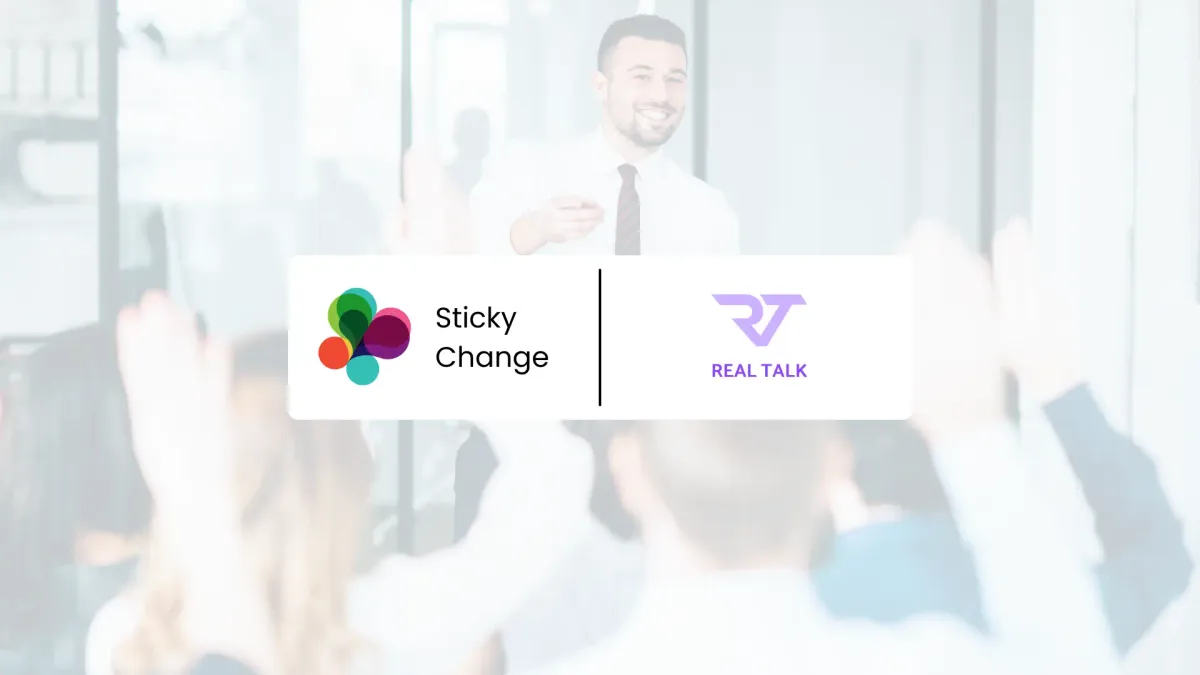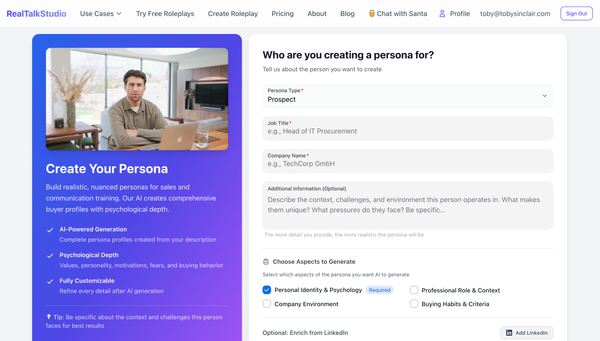How Sticky Change Used Real Talk Studio to Help 30 Leaders Build Confidence Giving Feedback to Their Bosses

Background
Sticky Change is a leadership and culture consultancy known for creating bold, practical learning experiences that stick. As part of a recent leadership programme, Sticky partnered with Real Talk Studio to help a group of 30 leaders develop one of the most uncomfortable and rarely practiced skills: giving upward feedback.
While many leaders are comfortable giving feedback to their team, far fewer feel confident giving honest feedback to their boss—especially when the stakes are high.
The Challenge
- Giving feedback to a manager is often seen as risky, awkward, or career-limiting.
- Traditional roleplays felt artificial or uncomfortable, especially when peers played the role of the boss.
- Sticky wanted to create a practice space that was realistic, emotionally engaging, and psychologically safe—so leaders could build confidence, not just knowledge.
“You rarely get to practise these conversations in real life—especially the ones with power dynamics involved. So we wanted a space where leaders could experiment, reflect, and grow.”
The Solution
Sticky Change integrated Real Talk Studio’s AI video roleplays into a 90-minute live virtual masterclass focused on feedback conversations. The session gave leaders the opportunity to:
- Learn and apply the BEER model for giving feedback
- Watch a live demonstration of a challenging conversation
- Go into small group breakout rooms and practise giving feedback to an AI avatar playing the role of a defensive manager
- Reflect as a group on what made the conversation effective—or not
Participants used the following scenario, now publicly available here: 👉 Boundary Setting with the Deadline Pusher
Outcomes
The impact of the session extended well beyond the 90 minutes:
- Leaders reported feeling more prepared and confident to give feedback upwards
- Participants valued the opportunity to practise in a psychologically safe environment, with many saying the AI avatar was more challenging than a real person
- Facilitators received overwhelmingly positive feedback on the session format, the relevance of the scenario, and the use of AI as a learning tool
“The avatar didn’t let me off the hook—it made me really think about what I was saying. That made it feel more real than roleplaying with a colleague.”
Participant Feedback Highlights
Why they showed up:
- “Building confidence talking to my manager during performance conversations”
- “Learning in a safe space to prepare for possible future team responsibilities”
- “Gaining some familiarity with AI avatars that I can share with clients”
- “Trying out a new approach to interpersonal learning—something we rarely get to practise”
What they noticed about the AI:
- “It was harder to win over than a real person—which was actually helpful”
- “Repetitive motion and slight delays, but the responses were sharp and realistic”
- “The avatar made me think carefully. Practising multiple times would be a game changer”
- “It felt emotionally charged, and it pushed me to stay calm and structured”
What made the session work:
- “Small group practice created psychological safety”
- “The BEER model was simple but powerful, and having a clear structure helped”
- “Great mix of short theory, hands-on practice, and group reflection”
- “Loved that we got straight into the exciting bit. The pre-work set it up well.”
Suggestions for next time:
- “More time to practise”
- “Would love to see scenarios tailored even more closely to our world”
- “Curious to explore how this could be used for sales conversations too”
Why It Worked
- Realistic emotional pressure: The AI avatar played a defensive, interrupting boss—mimicking real-world tension without real-world risk
- Safe space to try, fail, and learn: Practising in a breakout with an AI created distance that helped learners stay curious and open
- Repeatable and scalable: Participants could return to the same scenario on their own, reinforcing learning after the session
- Immediate feedback: The platform gave direct, structured feedback based on key communication skills



